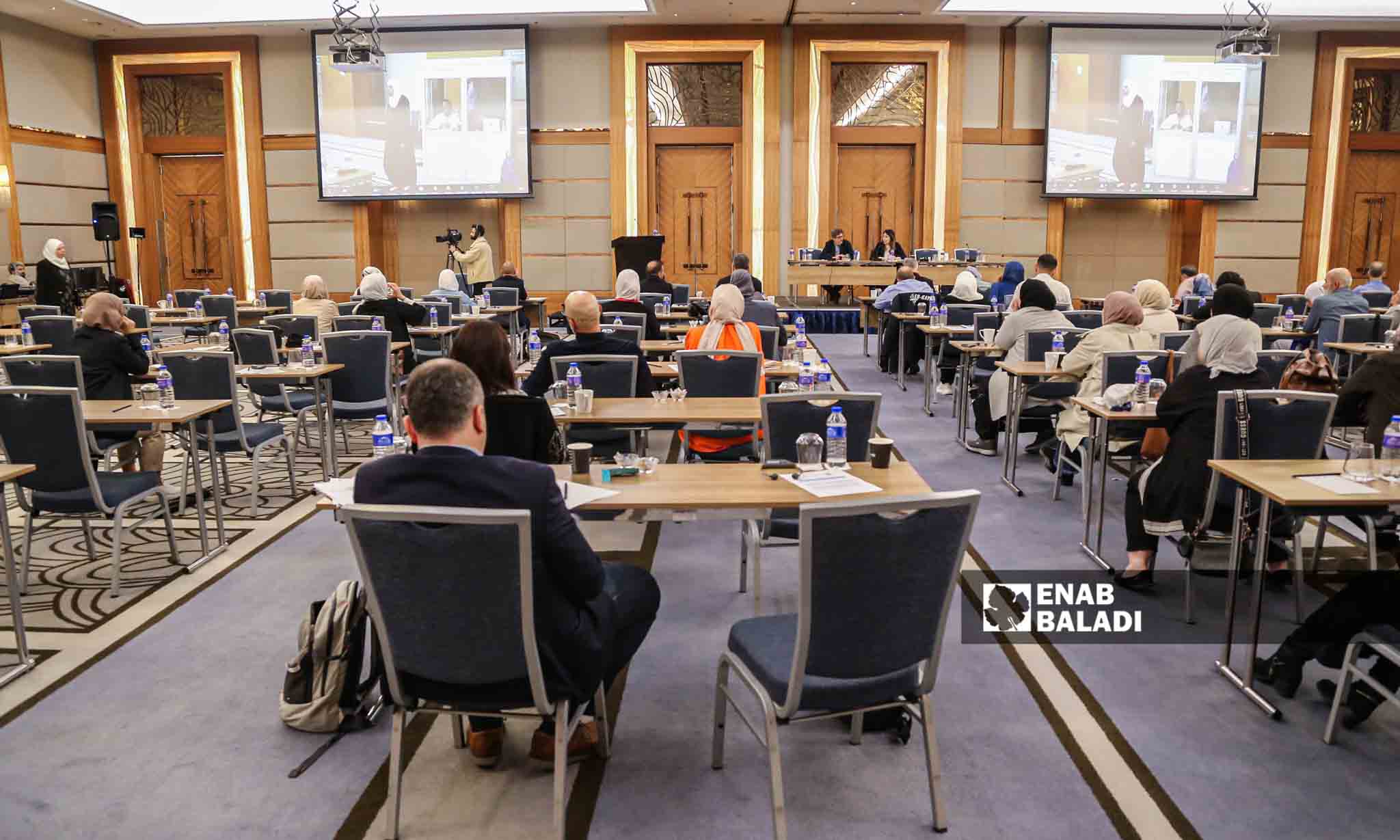The issue of Syrian detainees in the prisons of the Syrian regime and other parties has garnered significant attention from civil society organizations and human rights groups, particularly given the recent political developments in the Syrian crisis.
On Monday, a group of forty survivors of detention convened in Istanbul to meet with representatives of the UN Commission of Inquiry on Syrian Detainees.
Organized by the “Day After” organization, which focuses on democratic transition in Syria, the meeting encompassed discussions on recommendations that will be presented to the United Nations for deliberation at the upcoming donor conference on Syria in Brussels.
During the gathering, the members of the fact-finding committee announced the establishment of a new organization dedicated to Syrian detainees, operating under the auspices of the United Nations. However, specific details concerning its operational framework and commencement date were not disclosed. Additionally, the repercussions of recent Arab normalization with the Syrian regime were addressed.
No control over political decisions
The meeting witnessed the participation of representatives from the “Survivors” initiative, former detainees, and other organizations dedicated to supporting Syrian detainees. Additionally, 50 individuals attended the meeting virtually through the “Zoom” application.
According to the Syrian Network for Human Rights, the number of forcibly disappeared individuals stands at 111,907, with 95,696 of them held in Syrian regime prisons, accounting for 85.51% of the total. Furthermore, there are 155,243 detainees, among which 135,481 are held in Syrian regime prisons, constituting 87.27% of the overall figure.
A UN representative, who requested anonymity, conveyed during the meeting that the committee continues its efforts to document cases and establish communication channels with survivors, exerting constant pressure on the international community.
The representative further emphasized the committee’s reliance on the ongoing support and cooperation of survivors as the key stakeholders in this cause. The committee’s primary focus is to amplify their voices and work collaboratively toward the principles of justice and the future of Syria.
According to the UN representative, one of the main challenges faced by the commission is accessing survivors and obtaining information from inside Syria. This difficulty arises because the commission operates from Lebanon rather than from within the country.
Regarding the impact of Arab normalization with the Syrian regime, survivors raised concerns during the meeting. However, the representative clarified that the committee does not have control over the decisions made by states about this matter.
In recent developments, the Arab League decided to reinstate Syria’s seat to the Syrian regime, resulting in President Bashar al-Assad’s attendance at the most recent summit meeting held on May 19th in Saudi Arabia.
The UN representative emphasized that the committee’s primary focus lies in advocating for survivors and documenting their experiences. As part of this advocacy, a new mechanism is being established under the leadership of the United Nations Secretary-General, António Guterres. While further details were not provided about this mechanism, its affiliation with the Secretary-General was highlighted.
A long-term strategic issue
Mutasim al-Sioufi, the director of “The Day After” organization, explained to Enab Baladi that the purpose of the meeting was to establish a connection with a significant group of survivors who lack access to international platforms.
The primary objective was to establish direct links between these individuals and the relevant bodies, allowing them to familiarize themselves with UN mechanisms, including the Special Commission of Inquiry on Syrian Detainees and the upcoming organization to be established, as stated by Sioufi.
The main aim was to gather the attendees’ perspectives on the work of these committees, their concerns, aspirations, and goals.
In March, the Commission of Inquiry on Syria declared that the protection of civilians in Syria was essentially an illusion, coinciding with the release of their latest report on the Syrian crisis. The Commission highlighted that the warring parties continued to commit violations and abuses against the Syrian people, representing an ongoing failure to safeguard civilians.
Paulo Pinheiro, the head of the UN Commission of Inquiry on Syria, stated, “Despite witnessing many heroic acts amidst immense suffering, we have also witnessed a profound failure by the government and the international community, including the UN, to promptly deliver life-saving assistance to Syrians in desperate need.”
Sioufi emphasized to Enab Baladi that despite the hardships resulting from the lack of progress in the detainees’ file, it remains a strategic matter. Achieving justice in this regard requires significant time, particularly as it pertains to shaping Syria’s future rather than immediate accomplishments. Al-Sioufi noted that the victims themselves are the primary drivers who will carry this issue forward into the future.
This article was translated and edited by The Syrian Observer. The Syrian Observer has not verified the content of this story. Responsibility for the information and views set out in this article lies entirely with the author.


